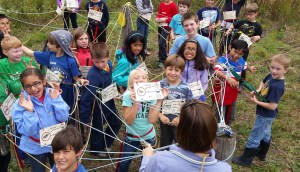Curriculum
Our education at PCCS is grounded in place-based and strives to ensure all students have a solid academic understanding of the natural world and recognize their own relationship with the environment. We approach education from a whole-student perspective, focusing on an academic understanding of the environment, an effective relationship with nature, and practicing behaviors that strengthen our communities.
Through all academic disciplines, our curriculum connects to the environment. We emphasize working in teams with critical thinking and hands-on activities that focus on real-world issues. Raising environmentally conscious problem solvers help ensure that tomorrow’s decision-makers are prepared for the challenges they will face in the future. We prepare our students to be Natural Leaders.
Remote Learning (E- Learning)
Remote Learning and E-Learning Procedures
In the event of school closings, the implementation of an Remote Learning (e-Learning) day may now be utilized by Prairie Crossing Charter School (PCCS) in lieu of the traditionally scheduled emergency days. Remote Learning Days are used when students engage in remote and virtual instruction, while not being physically present at school. Our goal on these days is to partner with our families to provide meaningful and engaging learning opportunities outside of the classroom, which will maintain our high expectations and pursuit of increased student growth and achievement.
This document highlights the roles of our students, staff, and parents/guardians on these days, in addition to other important information. As we begin integrating e-Learning days, we look forward to providing families and staff with a more stable learning calendar while maintaining continuity in student learning.
Governor Pritzker’s disaster proclamation, declaring a public health emergency due to COVID-19, ended May 11, 2023. As a result, COVID-leave rights, and other rights contingent upon the Governor’s public health emergency declaration, will also end. The following links to COVID protocols and implementation have been deactivated:
Fall 2020 Return to School Plan – Remote Learning
Remote Learning Phase 4A Implementation Plan
Phase 4B Blended Remote Learning Plan – Revised Jan 2021
Return to School Plan Revised Jan 2021 Phase 4C
Phase 5 Overview
Phase 5 Implementation Plan
Phase 5B Mask Choice Implementation Plan (Feb 22, 2022)
Instructional Philosophy
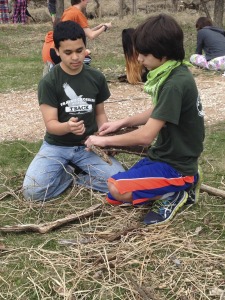 At Prairie Crossing Charter School, the environment is at the center of everything we do. This philosophy provides an ideal centerpiece for a rigorous academic curriculum. Place-based learning uses the local environment as a classroom and a foundation for the study of language arts, math, science, social studies and other areas of the curriculum. Young people are naturally curious about nature; it invites inquiry learning and intellectual stimulation.
At Prairie Crossing Charter School, the environment is at the center of everything we do. This philosophy provides an ideal centerpiece for a rigorous academic curriculum. Place-based learning uses the local environment as a classroom and a foundation for the study of language arts, math, science, social studies and other areas of the curriculum. Young people are naturally curious about nature; it invites inquiry learning and intellectual stimulation.
Being outdoors has proven emotional and physical benefits. The environment is naturally integrated across academic disciplines. Environmental issues encompass important concepts in both social studies and STEM (science, technology, engineering and math) content areas. The natural world has long been an inspiration for literature, visual and performing arts, making it an ideal lens through which to explore our own talents in these areas and study the efforts of writers and artists of significance.
Many topics are taught through Integrated Environmental Units — intensive, topic-themed units of study that incorporate all core academic areas. These units blur the traditional barriers between academic subject areas, showing students the real-world connections that exist between disciplines.
By doing so allows us meet more standards because they provide opportunities for interdisciplinary learning and connections.
Constructivism
PCCS practices constructivist teaching. Constructivism is an approach to teaching and learning based on the idea that students build (construct!) their own knowledge based on integrating new information with what they already know.
Constructivism relies on experiential learning and the inquiry learning cycle. In the inquiry learning cycle, learners go through a cycle of asking questions, investigating answers, creating explanations, reflecting on and applying the new knowledge, and generating more questions.
Constructivist practices that PCCS employs include:
Problem-Based Learning
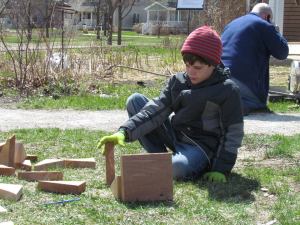 Within PCCS’ curriculum, teachers use problem-based learning as an instructional method which challenges students to “learn to learn”. Students work cooperatively and are engaged to seek solutions to real world problems the initiate learning in various disciplines. This instructional method prepares students to think critically and analytically, as well as utilize different learning resources appropriate for their grade level. It meets the needs of students in a variety of ways because it is student-centered, student-driven, and allows the teachers to differentiate instruction.
Within PCCS’ curriculum, teachers use problem-based learning as an instructional method which challenges students to “learn to learn”. Students work cooperatively and are engaged to seek solutions to real world problems the initiate learning in various disciplines. This instructional method prepares students to think critically and analytically, as well as utilize different learning resources appropriate for their grade level. It meets the needs of students in a variety of ways because it is student-centered, student-driven, and allows the teachers to differentiate instruction.
Service Learning
Service Learning is a method of instruction that integrates meaningful community service with academic learning and personal reflection. Service learning brings school out into the community and the broader community into schools, providing an enriching, integrated and meaningful educational experience. In addition to learning about academic topics, research shows that service learning is invaluable for teaching
21st century skills, such as collaboration, critical thinking, career readiness, and technology. Most importantly, service learning imparts valuable citizenship skills and is incorporate into the curriculum from kindergarten through 8th grade.
In early grades, students participate in teacher-led service learning projects, gradually taking on ownership until in 7th and 8th grades, students take on a culminating project that is entirely student generated and led.
For more information on Service Learning at PCCS see below.
Curriculum Overview
Prairie Crossing Charter School provides a curriculum centered on the environment. Our record of accomplishment sh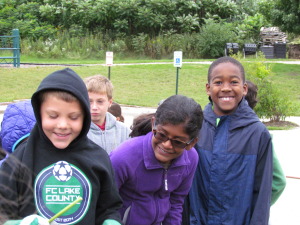 ows that the natural world is a springboard for learning, sparking children’s natural curiosity. Further, the outdoor classroom in our natural world provides an ideal integrating context for education, as the environment is connected to social and political history, economics, STEM disciplines, and serves as the inspiration for literature and writing. All curricular areas employ various methods of learning (hands-on, problem solving experiences to facilitate inquiry and discovery-based learning) to meet each child’s learning style. The school’s curriculum weaves the environment through multidisciplinary subject areas. Many topics are taught through Integrated Environmental Units, intensive topic-themed units of study that incorporate all core academic areas. Students also focus on environmental stewardship and behaviors that lessen direct impacts. The school has a service learning curriculum, which involves meaningful integration of community service and academic learning throughout all grades. Through service learning, students gain self-efficacy and valuable 21st century skills.
ows that the natural world is a springboard for learning, sparking children’s natural curiosity. Further, the outdoor classroom in our natural world provides an ideal integrating context for education, as the environment is connected to social and political history, economics, STEM disciplines, and serves as the inspiration for literature and writing. All curricular areas employ various methods of learning (hands-on, problem solving experiences to facilitate inquiry and discovery-based learning) to meet each child’s learning style. The school’s curriculum weaves the environment through multidisciplinary subject areas. Many topics are taught through Integrated Environmental Units, intensive topic-themed units of study that incorporate all core academic areas. Students also focus on environmental stewardship and behaviors that lessen direct impacts. The school has a service learning curriculum, which involves meaningful integration of community service and academic learning throughout all grades. Through service learning, students gain self-efficacy and valuable 21st century skills.
PCCS Scope and Sequence
Overviews contain ELA curriculum as well as PE, Art, Music and Spanish Kindergarten: Our 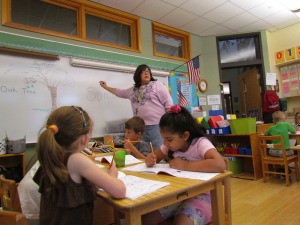 Kindergarten classes are from 8:00 to 1:00 With 24 students per class, each class has a Teacher and Instructional Assistant in order to ensure the social, academic and developmental needs of each child are met.
Kindergarten classes are from 8:00 to 1:00 With 24 students per class, each class has a Teacher and Instructional Assistant in order to ensure the social, academic and developmental needs of each child are met.
1st and 2nd Grade: First and second graders at PCCS enjoy an instructional day that goes from 8:00 to 3:30 each day. With 24 students per class, students are taught within looping or multi-age classroom placements. Students stay with the same teacher and instructional assistant for two years and benefit from learning within the same classroom environment, with the same teachers and classmates, which serves to enrich their educational experience and helps them to develop their academic, social and personal strengths further.
3rd and 4th Grade: Students in third and fourth grade enjoy the same type of classroom environment as those in first and second grade (looping and multi-age). By 3rd and 4th grade, students are challenged to begin to demonstrate greater independence and engage in more project-based group work. Important integrated units of study learned in this grade level include the Colonial American Experience and Native Americans in the Midwest.
5th and 6th Grade: Fifth and sixth graders are taught within two different classroom frameworks: multi-age or looping classroom settings. Students begin utilizing technology at a greater level in these years. Highlights of the curriculum taught in this grade level includes National Parks, Ancient Greek and Egyptian history and culture, as well as more advanced science instruction. Integrated learning within these units of study occur through group work, written projects and oral presentations.
7th Grade: Seventh graders at PCCS are taught math, ELA, science and social studies in a typical middle school format. Students “switch” classes from one subject area and teacher to another, learning how to navigate instruction from a variety of educators. Highlights of seventh grade include an intensive look into American history beginning in 1900 as well as delving deeply into literature with books such as Anne Frank, Night, an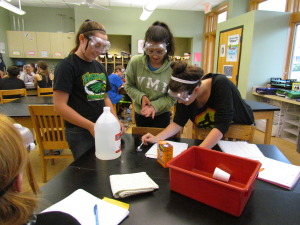 d Animal Farm.
d Animal Farm.
8th Grade: Students in eighth grade benefit from math, ELA, science, and social studies instruction in a typical middle school format. Eighth graders enjoy the challenge of increased group work, different writing assignments, and long term projects which prepare them for academics in high school. Students learn pre-algebra, algebra, Revolutionary War and Civil War history, chemistry and American literature in eighth grade.
Each child receives the small school personalized care that they desire from teachers and staff. Through innovative educational experiences graduates are academically prepared, confident of who they are and environmentally responsible.Our results are consistently high student achievement and over 80% of our graduates enter High School in AP and Honors classes as freshman.
Service Learning Projects
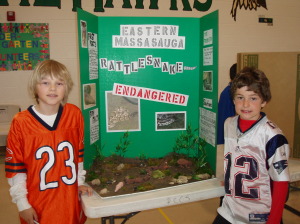 All PCCS students, beginning in Kindergarten, participate in Service Learning Projects each year. As early learners, projects are conducted as a large group in the classroom. As students get older, they begin to take more ownership of their projects, working in small groups to achieve objectives they create.
All PCCS students, beginning in Kindergarten, participate in Service Learning Projects each year. As early learners, projects are conducted as a large group in the classroom. As students get older, they begin to take more ownership of their projects, working in small groups to achieve objectives they create.
Through service learning our students to understand the needs of our local and global communities and helps them become Natural Leaders.
Our goals for service learning:
- Students will be active members of their communities, working to address environmental concerns and seeking to improve conditions in their community and beyond;
- Students will be empowered to enact change and feel the joy that comes from knowing you have helped to improve things; and
- Students will learn valuable 21st century skills, including civic involvement, collaboration, communication, problem solving, and critical thinking.
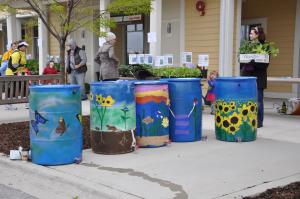
Culminating Projects
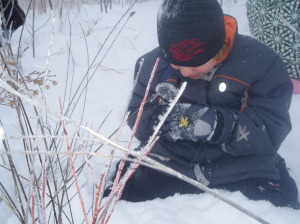 The PCCS Culminating Project (CP) is an extended Service Learning Project completed individually or with a partner. Students spend 18 months working on a project of their choosing. Through work on the CP, students will address two main questions:
The PCCS Culminating Project (CP) is an extended Service Learning Project completed individually or with a partner. Students spend 18 months working on a project of their choosing. Through work on the CP, students will address two main questions:
- How will I improve the world and positively impact the environment and my community?
- How can I showcase the person I have become in my years at PCCS?
During the first trimester of 7th grade, students will identify an environmental challenge that needs attention – and a specific action that they will work on that helps resolve the challenge they have identified. Students spend the remainder of their 7th grade year and their 8th grade year completing the 3 components of a CP:
- Fieldwork/Service hours. Students volunteer, completing meaningful service towards completing their project.
- Final Paper. The paper, aligned with ELA CCSS, involves writing five, 4-5 paragraph essays
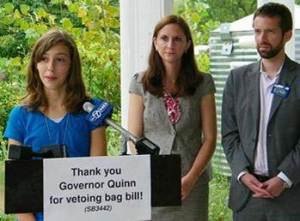 about the issue and project.
about the issue and project. - Final Presentation. In a final gallery-style presentation, students uses displays, media and other visuals and prepare a 3-minute talk to small groups of audience, through the course of one day at the end of 8th grade.
Tasks and Timeline:
CP is broken down into small steps for students.
- First, they will go through a process of assessing both community needs and their own interests and talents to determine what issue they want to address and how they want to address it (their project). Students create goals and action plans to guide how they will accomplish their goals.
- The final paper is comprised of several small sections which are assigned throughout 7th and 8th grade. For each section, students will receive an assignment that guides them as to what questions to address in the research and writing of that section. Students will complete an outline of the section, and then turn in a rough draft. After faculty and peer editing, students turn in a fi
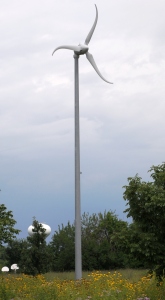 nal draft of the section.
nal draft of the section.
- Field hours — service hours that the students put forth, both during and outside of school hours, toward addressing their challenge. These are monitored in 5-hour increments. Ten hours must be completed by the end of 7th grade and an additional 25 hours by the end of 8th grade. In addition to completing the required number of hours, students must accomplish a goal that makes an impact for the community. Students, with adult guidance, set their own goals, decide what the outcome of their project will be and their hours are assessed based on their accomplishment of their own goals. Goals can be modified throughout the process.
Partner with Parents:While it is important that the project be the student’s responsibility, we recognize that parents play an important role in the culminating projects. We welcome parents to share their contacts, their professional or personal skills, and their ideas with their children, as long as the students retain ownership of the projects. Parents have a voice in the CP approval process. This way, parents can monitor, early on, whether they will be asked to provide transportation, funds, or other resources toward their child’s project. These contributions are not required, and this is why we ask, up front, for parents to consent that they understand what their child’s project entails.We ask that parents help monitor their child’s progress on the CP by having monthly check-in meetings with their parents. During these meetings, students and parents will discuss the progress made, stumbling blocks, issues and next steps. We will ask that parents provide a signature acknowledging that these monthly meetings have occurred. Updates of progress/missing assignments/grades will be posted on PowerSchool, and we ask that parents keep abreast of these postings.
Positive Behavior Interventions & Supports
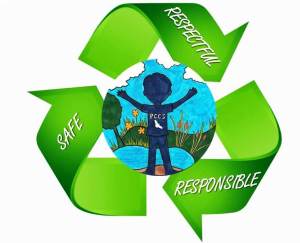 Positive Behavior Interventions & Supports (PBIS), is a proactive systems approach focused on increasing students’ social, emotional and academic success through tiered supports and a focus on positive and preventative measures. Behavioral expectations for student behavior are explicitly taught, modeled, and reinforced across settings by all school staff.
Positive Behavior Interventions & Supports (PBIS), is a proactive systems approach focused on increasing students’ social, emotional and academic success through tiered supports and a focus on positive and preventative measures. Behavioral expectations for student behavior are explicitly taught, modeled, and reinforced across settings by all school staff.
At PCCS, our school-wide expectations are “Be Responsible, Be Respectful, & Be Safe.” A matrix, which specifies student behaviors in alignment with these expectations, is utilized across the various settings of our school. Positive acknowledgement of student behavior is given through the distribution of Hawk Tickets, in an effort to encourage further display of positive behaviors in students as well as to encourage recognition of positive behaviors by staff.
For more information about PBIS, click here.
Special Ed and Student Services
Welcome to Student Services at Prairie Crossing Charter School
At Prairie Crossing Charter School, we nurture an inclusive community where every student feels valued, supported, and inspired to learn and grow together. Guided by CARES (Collaborate, Aware, Respect, Empowered, and Sustainable), our work centers on cultivating a safe and engaging environment where students actively shape their learning and contribute to a thriving school community.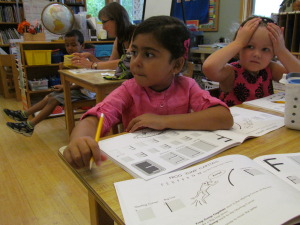
The Student Services team partners closely with teachers, administrators, and families to ensure that all learners can access meaningful educational opportunities. Together, we provide academic, social-emotional, and behavioral supports through a multi-tiered system of support (MTSS), as well as individualized services for students who qualify under the Individuals with Disabilities Education Act (IDEA), Section 504 Plans, and Multilingual learners. Our services may be delivered in the classroom, in small groups, individually, or through consultation with student services professionals. Through CARES, we build a community where collaboration and respect empower students, sustainability guides our decisions, and every child is encouraged to reach their full potential.
Parent Resources
- Notice of Procedural Safeguards for Parents/Guardians 2022: English
- Notice of Procedural Safeguards for Parents/Guardians 2022: Spanish
- Notice of Procedural Safeguards for Parents/Guardians 2022: French
- Notice of Procedural Safeguards for Parents/Guardians 2022: Other Languages
- Understanding PUNS
- Understanding PUNS: Spanish
- IL ABLE: Savings for People With Disabilities
- IL ABLE: Savings for People With Disabilities: Spanish
- ISBE Special Education Parent/Guardian Information
- RTO Bill of Rights
Extended School Year (ESY)
Extended School Year (ESY) is an invitation-only program provided to qualifying students with IEPs. Students qualify for ESY at the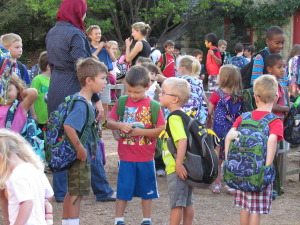 recommendation of their IEP team. ESY services are provided by special education team members and focus on student IEP goals. This program runs from mid-June to early July, Monday through Thursday for grades K-7 (time frames to be determined annually). There is no cost for the program, and students will be provided transportation if needed. Parents will be notified if students are invited to participate in this program.
recommendation of their IEP team. ESY services are provided by special education team members and focus on student IEP goals. This program runs from mid-June to early July, Monday through Thursday for grades K-7 (time frames to be determined annually). There is no cost for the program, and students will be provided transportation if needed. Parents will be notified if students are invited to participate in this program.
This program runs from mid-June to early July, Monday through Thursday for grades K-7 (time frames to be determined annually). There is no cost for the program, and students will be provided transportation if needed. Parents will be notified if students are invited to participate in this program.
McKinney-Vento (Homeless and Youth in Care)
If you and your children are living in a temporary housing situation, your children have the right to: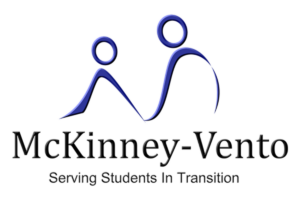
- Stay in the school of origin, or choose the attendance area school where you are sleeping
- Receive transportation to and from your school of origin
- Immediately enroll in school, with or without school/health records
- Receive free lunch and school fee waivers
A temporary housing situation is defined as:
- Sharing housing with others because of loss of housing, economic need, or domestic violence
- Living in a shelter or motel
- Living in a campground, park, car, or abandoned building
- Living without a permanent address
Additional resources:
- Lake County McKinney-Vento Website
- Illinois State Board of Education McKinney-Vento Website
- Illinois State Board of Education Youth In Care Website
The Director of Student Services serves as the district’s Homeless Student Liaison.
Title IX
Prairie Crossing Charter School is committed to providing a learning and working environment free from discrimination based on sex, including sexual harassment, as required by Title IX of the Education Amendments of 1972. Title IX is a federal law that protects students, staff, and community members from discrimination in all education programs and activities.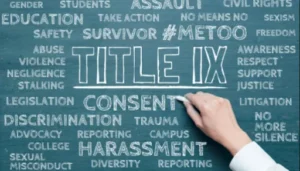
The Director of Student Services currently serves as the district’s Title IX Coordinator. For more information and contact information Click here.
Stevens Amendment
Regular Education Services
At Prairie Crossing Charter School, additional services may be available to students at-risk of not meeting grade level expectations. For students who qualify, services are currently offered in the areas of reading and math. PCCS has developed a Response to Intervention Plan, a regular education initiative which provides a blueprint for teachers to develop interventions and assist planning for their student’s academic development.
Special Education Services
Prairie Crossing Charter School offers wide array of special education services to students who qualify. Students who are found eligible for Special Education receive services from a highly qualified group of specialists who provide a wealth of varied services to students identified. Prairie Crossing Charter School provides social work, counseling, occupational therapy, speech and language therapy, physical therapy and hearing itinerant services to students who qualify for services.
Additional Programs and Services:
- Section 504 plans
- Enrichment
- RtI
- Restorative Practices
- Title I Intervention
- Nursing
- Counseling
- Social Work
- New Student Mentor Program and more.
English as a Second Language Prairie Crossing is a school that embraces its students’ diversity! Bilingualism is an asset to our students becoming natural leaders. Our English as a Second Language programming focuses on improving students’ English skills while encouraging our cultural differences. For more information about our Student Services Department please contact: Melissa Thompson, Director of Special Education and Student Services Click here to learn about educational rights and responsibilities from the Illinois State Board of Education.
Faith’s Law to Safeguard Against Sexual Abuse in Schools
Faith’s Law expands the criminal definition of grooming beyond electronic communications to include written communications and acts committed in person or by conduct through a third party. The law also makes it clear that mandated reporters must report suspected grooming to DCFS under the Abused and Neglected Child Reporting Act.
In addition to expanding the criminal definition of grooming, Faith’s Law includes several new requirements for schools and educators intended to prevent sexual abuse and misconduct in schools. Faith’s Law adds a completely new section to the Illinois School Code (105 ILCS 5/22-85.5) pertaining to sexual misconduct in schools. This section applies beginning July 1, 2022, and requires all school districts, charter schools, and nonpublic schools to develop an employee code of professional conduct policy that must be made available on the school’s website and included in any staff, student, or parent handbook. This employee code of professional conduct policy must address the following:
- Incorporate the Code of Ethics for Illinois Educators;
- Incorporate the statutory definition of “sexual misconduct” in Section 22-85.5;
- Identify expectations for maintaining professional relationships with students and appropriate staff-student boundaries, recognizing the age and developmental level of the students served, and establish guidelines for the following situations: (1) transporting a student, (2) taking or possessing a photo or a video of a student, and (3) meeting with a student or contacting a student outside of the employee’s or agent’s professional role;
- Reference employee reporting requirements under the Abused and Neglected Child Reporting Act and Title IX; and
- Reference required employee training related to child abuse and educator ethics applicable under State or federal law.
The law specifically provides that any violation of the employee code of professional conduct or failure to report a violation may subject an employee to discipline, up to and including dismissal from employment.
Faith’s Law also requires ISBE, by July 1, 2023, to create and post on its website a resource guide that will function as a centralized source of guidance about sexual abuse response and prevention for students, parents/guardians, and educators. Starting at the beginning of the 2023-2024 school year, school districts must annually notify parents of ISBE’s resource guide and provide copies of the guide to parents/guardians upon request or make the guide available on their website.
Need to report a concern or an incident? Call your child’s school, state the reason for your call, and speak to the principal or a social worker. Anonymous reports can be made by completing the Bullying/Incident Reporting Form (starting on Page 15) or by calling the Bully Hotline: 847-986-3504
For more information about Faith’s Law, visit the ISBE website.
Trips
Prairie Crossing Charter School offers a number of overnight field trips in the 5th-8th grades. These trips are a significant component of our environmental education focus. They allow our older students to spend time immersed in the natural world, learning about caring for the environment and for their own physical, emotional, and social wellness.
- Lodging Consent Form (will be available through classrooms with electronic signature)
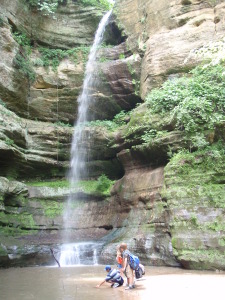
- First Aid Permission Form (will be available through classrooms with electronic signature)
- Campout Trip Policies and Procedures
- Chaperone Forms for PCCS Camping Trip
- Physician Authorization Form
5th and 6th Grade Spring Camping Trips
Our 5th-6th grade trips feature an immersion experience in a new natural area, alternating between the ravines of Starved Rock and the lakefront and sand dunes at Warren Dunes. This allows Prairie Crossing Charter School students to learn about the geology, flora, fauna, and history of different ecosystems. Our students also learn environmentally friendly recreation skills and the importance of teamwork.
7th Grade Fall (2) One-Day Excursion Trips – Covenant Harbor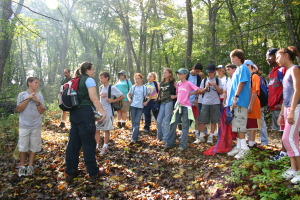
Prairie Crossing Charter School students spend (2) one-day excursion trips within the beautiful setting of Lake Geneva. Here they will be learning self-sufficiency and personal empowerment. These excursions help jump start the year by providing team building, personal growth, and environmental learning opportunities through a partnership with a variety of local attractions and day camps.
7th Grade Spring Trip
Eagle Bluff Environmental Learning Center
During this five-day long field trip, students and staff have the opportunity to bond and enhance their sense of connections among and between people and the environment. Eagle Bluff is dedicated to fostering environmental awareness and promoting respect and personal responsibility, values that are in perfect alignment with the mission and values of Prairie Crossing Charter School. During this trip, our students take experiential classes that include geology, navigation, macro-invertebrates, stream ecology, astrology, mythology, discovery, team building, low ropes courses, and rock climbing on an indoor wall.
8th Grade Fall Trip
Camp Manito-Wish, Boulder Junction, WI
This trip allows Prairie Crossing Charter School students to canoe in the wilderness, complete a high ropes and teams’ course, and learn about the ecology of the North Woods. The trip also serves as an intense group bonding experience and a journey of personal discovery as students learn about their own strengths, challenges and interests.
8th Grade Spring Trip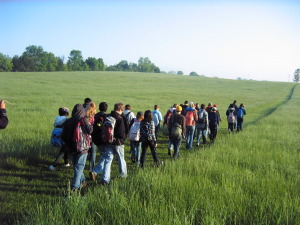
Civil War History,
Virginia, Pennsylvania, and Washington, D.C.
Led by 8th Grade Teachers Mr. Flood and Mrs. Jackson a perennial favorite of all graduating classes, this unique trip spans historic Civil War battlefields, monuments, and our nations capital. Of course, this trip has environmental components as well, the class study the ecology battlefields, learning about how the unique environmental aspects of the sites and spend time on the Chesapeake Bay learning about water quality, habitat and the importance of our natural ecosystems.
What makes PCCS so unique?

